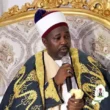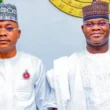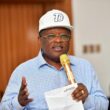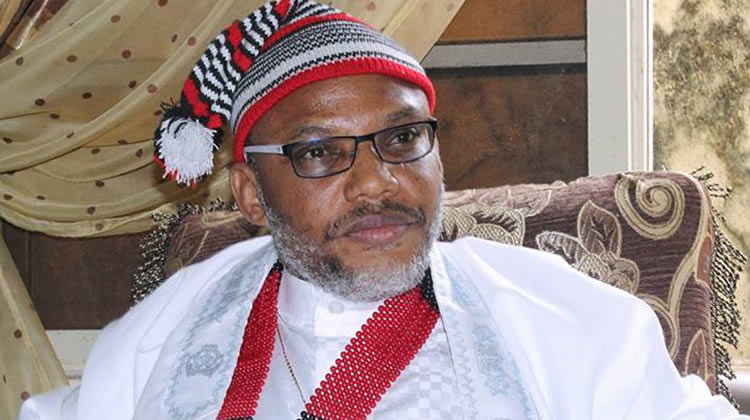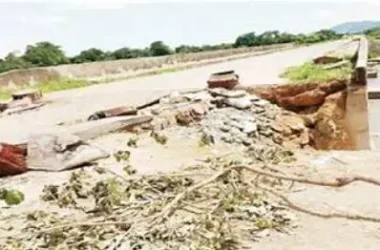The detained leader of the Indigenous People of Biafra (IPOB), Nnamdi Kanu, has told the Federal High Court in Abuja that he has no case to answer in the terrorism and treason trial brought against him by the Nigerian government. This announcement came after the prosecution, led by Chief Adegboyega Awomolo (SAN), closed its case following the testimony of its fifth and final witness.
The witness, who was identified only as “EEE,” testified behind a screen for security reasons. He works with the Department of State Services (DSS) and was part of the team assigned to gather intelligence after the EndSARS protests in 2020. He told the court that although he never met Kanu personally, he monitored his broadcasts and linked them to acts of violence, including the killing of 186 police officers and the destruction of 164 police stations. The court accepted several documents as evidence, such as death certificates, a damage report, and a certificate of compliance.
Kanu’s lawyer, Chief Kanu Agabi (SAN), notified the court that his client would be filing a no-case submission. This legal step means Kanu believes that the prosecution failed to present enough evidence to require him to defend himself. If the court agrees, he will be discharged and the trial will come to an end.
Justice James Omotosho, who is presiding over the case, has given both legal teams 14 days to submit their written arguments and two additional days for replies. The case has been adjourned to July 18 for the adoption of these submissions.
The DSS initially arrested Kanu on October 14, 2015, after he returned from the United Kingdom. He was later granted bail on medical grounds in April 2017. However, after soldiers raided his home in Abia State, resulting in the death of some of his followers, he fled the country. Kanu was eventually re-arrested in Kenya on June 19, 2021, and brought back to Nigeria on June 27 of the same year.
Since June 2021, he has remained in DSS custody. His legal journey has included several turns: In April 2022, the court removed eight of the original 15 charges due to lack of evidence. Later, in October of the same year, the Court of Appeal ordered his release and struck out the remaining charges. The Federal Government appealed this ruling at the Supreme Court, which in December 2023 allowed the trial to continue based on a seven-count charge.
Kanu’s legal team insists the prosecution has not proven its case. His lawyer also challenged the evidence presented, saying full arguments would be made in their final written address.


